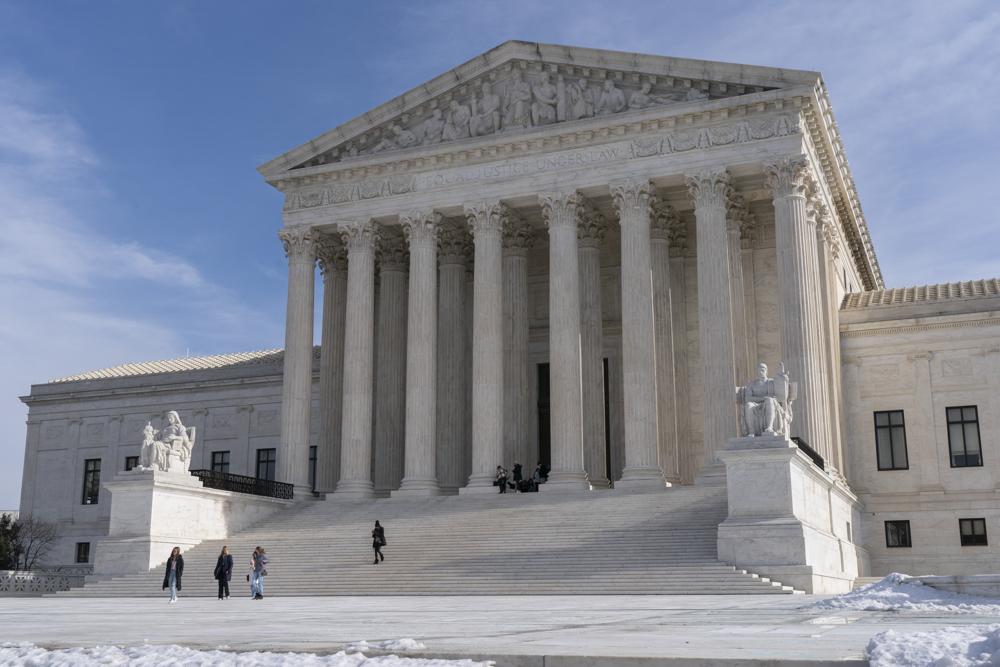The Supreme Court has rejected a challenge from House Republican leader Kevin McCarthy to the proxy voting system that Democrats put in place in response to the coronavirus pandemic.
McCarthy had sought a declaration that proxy voting, an absent representative giving authority for someone in attendance to cast his or her vote, was unconstitutional. As is typical, the high court said nothing in rejecting the challenge Monday.
House lawmakers voted by proxy for the first time in May 2020 following a House rules change. The change was intended to strike a balance between working from home during the coronavirus outbreak and honoring the Constitution’s requirement to be “present” and voting.
Lower courts had agreed the lawsuit should be dismissed because each house of Congress can set its own rules for voting.
Proxy voting has become a routine and time-consuming part of House business during the pandemic, with lawmakers waiting in long lines to cast votes for their colleagues. Members of both parties have used the system to work remotely. Attendance in the House has been particularly sparse during the worst waves of the virus, though lawmakers often use the system to attend events outside Washington.
Republicans have said they would end that practice should the GOP win the majority in the midterm elections. McCarthy told reporters last week that Americans expect their leaders to work and that proxy voting allows lawmakers to skip important aspects of their job.
“I think people should show up to be paid. I think people should work together across the aisle. And if you’re here, that’s when you can make that happen,” McCarthy said. “And fortunately in the next year, we’ll change that.”
(AP)












2 Responses
The Supreme Court again abdicated its responsibility.
One branch can’t kibbitz on the internal rules of another. The Supreme Court and the Congress are equals, and the Supreme Court does not address hypothetical questions (the “cases and controversies” clause).
The real issue would arise if a bill passes the House based on proxy votes, with a majority of those percent voting against it, and the Senate approves the bill and it becomes a law. Then someone could argue that the bill had not in fact passed since the House had not in fact enacted it, and that the statute in question is in fact not a valid statute.